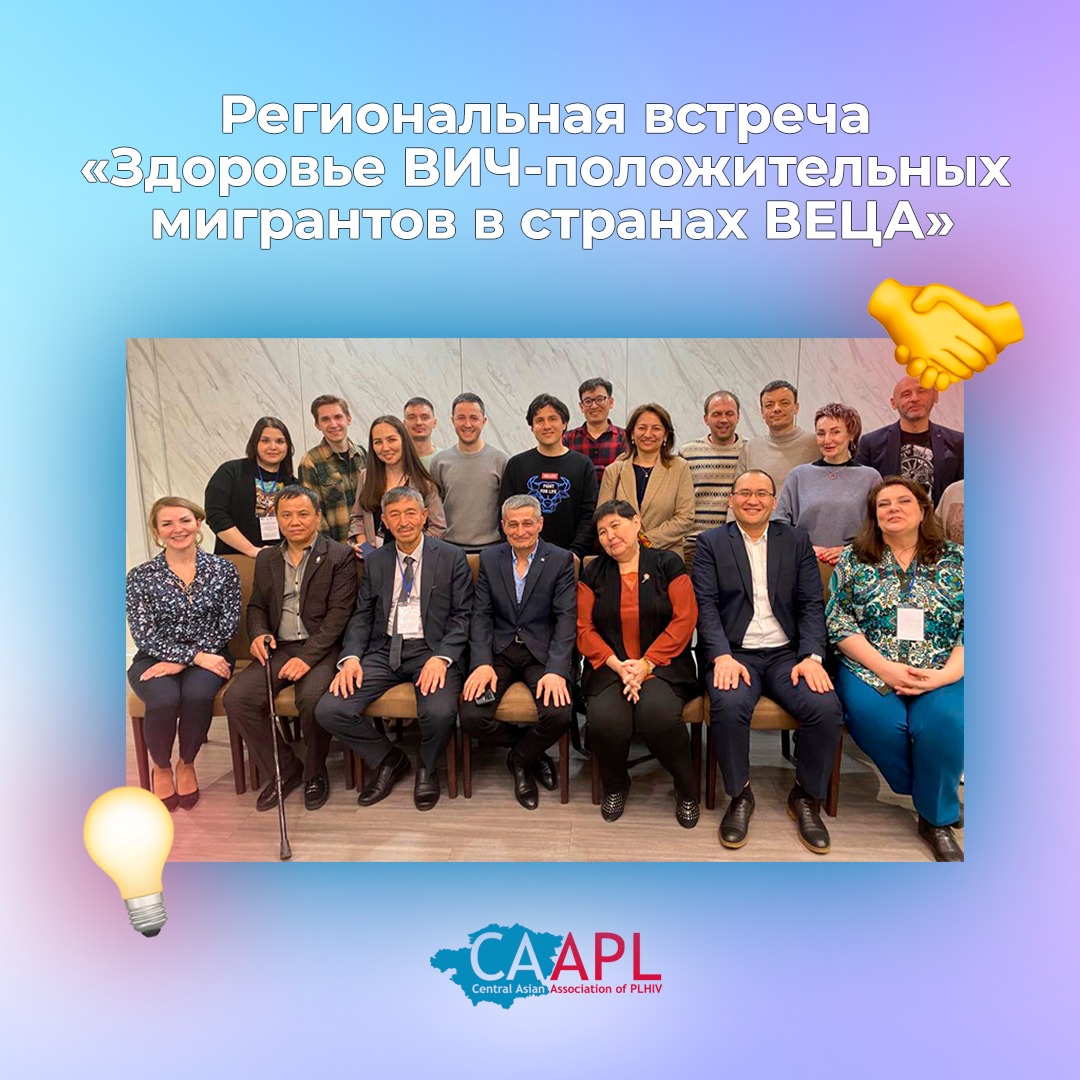On March 10-11 2022 REG together with Central Asian Association of People Living with HIV held a meeting “Health of HIV positive migrants in Eastern Europe and Central Asia” in Almaty, Kazakhstan in the framework of #SOS project and with the financial support from UNAIDS. This was a face-to-face event to discuss and exchange experience between the heads of health authorities of sending and receiving countries in Central Asia. The aim of the meeting was to promote effective and timely treatment of international HIV-positive migrants. The meeting had the following objectives: to present and discuss new research in the area of migration and HIV and migrants’ access to health services in the host countries – Russia and Kazakhstan; to discuss evidence-based arguments for state decision makers, representatives of civil society, academia and international organizations; to promote cross-border arrangements between the countries of origin and destination of migration in EECA to create legal options for timely treatment for migrants living with HIV wherever they reside. REG country representatives in EECA countries, representatives of health authorities of EECA countries, specialists from regional and international organizations from Kazakhstan, Russia, Kyrgyzstan, Uzbekistan, Tajikistan attended the event, experts from WHO office and Ministry of Health of Armenia jointed the meeting by zoom.
New factors have been added due to the catastrophe in Ukraine. The number of international refugees and internally displaced people in the region of Eastern and Central Europe continues to grow. It seriously changes the migration patterns in the EECA region as some countries that have been traditional countries of origin of migration are now becoming countries that receive migrants. The humanitarian crisis is already affecting access to HIV care and other services for key population groups.
Officials from the Ministries of Health of the EECA countries have now mentioned the inability to send medicines to their citizens – registered patients living with HIV who reside in Russia. Therefore, increased restrictions on transportation and post services in the region significantly hinders access to ART for foreign migrants living with HIV in Russia.
Based on discussions and presentations, a resolution was developed, where experts formulated a number of proposals and recommendations for the governments and civil society organizations in the countries of migrants’ origin and international organizations. Please see the Resolution (in ENG and RUS).
